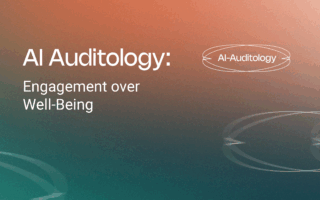What's
When Research APIs Close the Door: Using Algorithmic Auditing as an Alternative Approach to Study Social Media
Access to public data from social media platforms is, in general, an important enabler for research activities in all fields, ranging from computer science to social science and humanities. The European legislation, namely the Digital Service Act under Article 40, obliges designated Very Large Online Platforms (VLOPs) and Very Large Online Search Engines (VLOSEs) to provide data access to researchers. According to paragraph 4 of DSA article 40, researchers meeting specified conditions (so-called vetted researchers) can apply for access to VLOPs’ and VLOSEs’ non-public data by submitting a data access request to the relevant Digital Services Coordinator. However, this procedure has not yet been put into practice.
Researchers, therefore, need to rely either on paragraph 12 of the same article, which gives researchers an option to obtain access to public data in order to study systemic risks, or on various voluntary schemas that social media platforms provide for academic access to their data.
Many researchers from various disciplines worldwide are currently applying for such access. However, a significant number report that their applications are rejected for various reasons, with some rejections appearing to be unjustified. In a related development, the European Commission has opened formal proceedings against the X platform to investigate suspected failures in providing researchers access to its publicly available data, as mandated by Article 40 of the DSA.
In the following text, we provide a timeline of how we applied for TikTok research data access (API) 1.5 years ago, and have not received it yet. Sadly, our negative experience is not the only one. There are many similar stories by many researchers. And it seems that the situation is not getting better at all.
Fortunately, in our AI-Audiology project, we aim to perform external independent audits to study social media. This allows us to conduct experimental studies even without any cooperation with the audited platform. Nowadays, considering how challenging it is for researchers to obtain access to data, we see how important this motivation and direction are.
Despite this advantage built into our approach, having no research data access, however, means a lot of additional technical difficulties that we must overcome, instead of focusing on audits and the research itself. Therefore, we see a ray of hope in becoming vetted researchers according to the DSA under article 40, which will be put in practice hopefully soon (the Delegated Regulation on data access provided for in the Digital Services Act was adopted recently on July 1, 2025). This legislation will strengthen the position of researchers in highly needed research on social media platforms and their positive as well as negative effects on our society.
Within our research activities, we decided to apply for access to TikTok’s research API to study how our content credibility analysis can be applied to TikTok data. Following the provided submission form, we prepared a description of our research project and submitted it on December 19, 2023.
The automatic notification email confirmed the submission of our application as follows: “We have received your application and will proceed with the review process. You will be notified of the result via email, generally in 4 weeks. If you have any questions, please contact our Support team.”
Four months later, on April 26, 2024, we contacted the TikTok support with a kind reminder about the status of our application, since it was significantly delayed, taking into account the announced duration of the process.
Just a few days later, on April 30, 2024, we received a reply: “We appreciate the time you have taken to submit an application. Unfortunately, after careful review of your application, it was determined that you are not eligible as you are from an institution that is not a US/EEA university. Please see our eligibility criteria here.”
The reason for our rejection was that our organisation is not a university located in the European Economic Area. Nevertheless, the directly cited eligibility criteria did not mention any such requirement. Instead, the mentioned criteria at that time said that the applicant must “be employed by a non-profit academic institution in the U.S. or Europe”.
On the same day, we pointed out the mismatch between the official rejection and the eligibility criteria and provided evidence that our research institute is indeed a non-profit academic institution located in Europe. TikTok acknowledged receiving this email: “Thank you for the information! We have forwarded your message to our relevant team to review, and will keep you posted if we have any more updates!”
Unfortunately, there was no response for the next 4 months. So on September 2, 2024, we approached them again. No immediate response occurred. Finally, it arrived more than one month later, on October 7, 2024, saying: “Firstly, apologies for the delay in getting back to you, and thank you for your patience. Secondly, at the time you submitted your application, it was rejected on the grounds that your institution was not eligible. If you think it should be eligible now based on our criteria here, please feel free to reapply, and we will process it accordingly.“
It was disheartening to wait five months only to be told they would not review our appeal and that we should reapply instead. Since we were indeed interested in having access to TikTok’s research API, we decided to apply again.
In the meantime, our project AI-Auditology started, and the submission form has changed. Also the eligibility criteria has been extended, the applicant must “be located in an eligible region and be affiliated with an eligible organization: 1) Academic institutions in the US, EEA, UK or Switzerland; or 2) Not-for-profit and/or independent research institution, organization, association, or body in the EU.”
So we updated our original application accordingly. While being an academic institution, we decided to go with the second (we supposed even safer) option of “not-for-profit and/or independent research institution, organisation, association, or body in the EU.” Also, the new submission form requires attaching the approval of the institutional ethics committee. We obtained one and attached it to our second application.
In order to provide evidence of our non-profit status, we also attached the statutes of our organisation. More specifically, point 1.5 of the organisation statutes explicitly prohibits creating and sharing any profit as follows: “Members of the Institute shall not be entitled to any profit shares, perquisites, or other similar benefits by virtue of their membership. If the Institute makes a profit, it shall be obliged to use it exclusively to finance or otherwise provide for the activities of the Institute.”
We submitted our second application on January 15, 2025. A familiar notification email was received: “We have received your application and will proceed with the review process. You will be notified of the result via email, generally in 4 weeks. If you have any questions, please contact our Support team.”
And guess what? No answer in 4 weeks. No answer even in 4 months. So we sent a reminder on May 2, 2025. Still no response. Another reminder on May 17, 2025. Still no response.
Finally, an answer arrived on June 24, 2025. And as you may expect, our second application was rejected again:
“After careful assessment, our teams have found that your organisation’s current legal structure doesn’t align with the specific nonprofit requirements for TikTok Research Tools (https://developers.tiktok.com/products/research-api/).
We understand this may be disappointing news.
For context, our program requires organisations to hold formal tax-exempt status with regulatory authorities, as outlined in our nonprofit definitions (https://goodstack.org/nonprofitdefinition).
Our independent assessor, GoodStack, has indicated that your organisation’s current legal form doesn’t yet meet these particular criteria.
We recognise the valuable work you’re doing and encourage you to reapply if your organisation’s legal status changes in the future. We’d be happy to reconsider your application at that time.”
We wish to highlight that the official eligibility criteria state an applicant must be a “not-for-profit and/or independent research institution, organisation, association, or body in the EU”. The criteria provide no specific definition of a non-profit organisation. The use of “and/or” makes it clear that being non-profit is not a mandatory condition. Regardless of the assessor’s evaluation, our organisation is undeniably an “independent research institution”, thereby satisfying the requirement.
At the same time, we had strong doubts about the meaning of appealing to this erroneous decision again. But indeed we did it, and on July 2, 2025, pointed out again the repetitive mismatch between TikTok’s justification for application rejection and their own official eligibility criteria. We may expect the answer in 4 months, maybe 8, nobody knows.
The email thread with TikTok’s support has the following subject that very clearly summarises our feelings and time wasted by the preparation of two applications, sending reminding emails and waiting for unjustified decisions:
“Re: [External] TikTok for Developers: [1714138354180] No response on my Research API application for 4 months and again no answer after another 4 months, and one more time, no answer after another 4 months”




